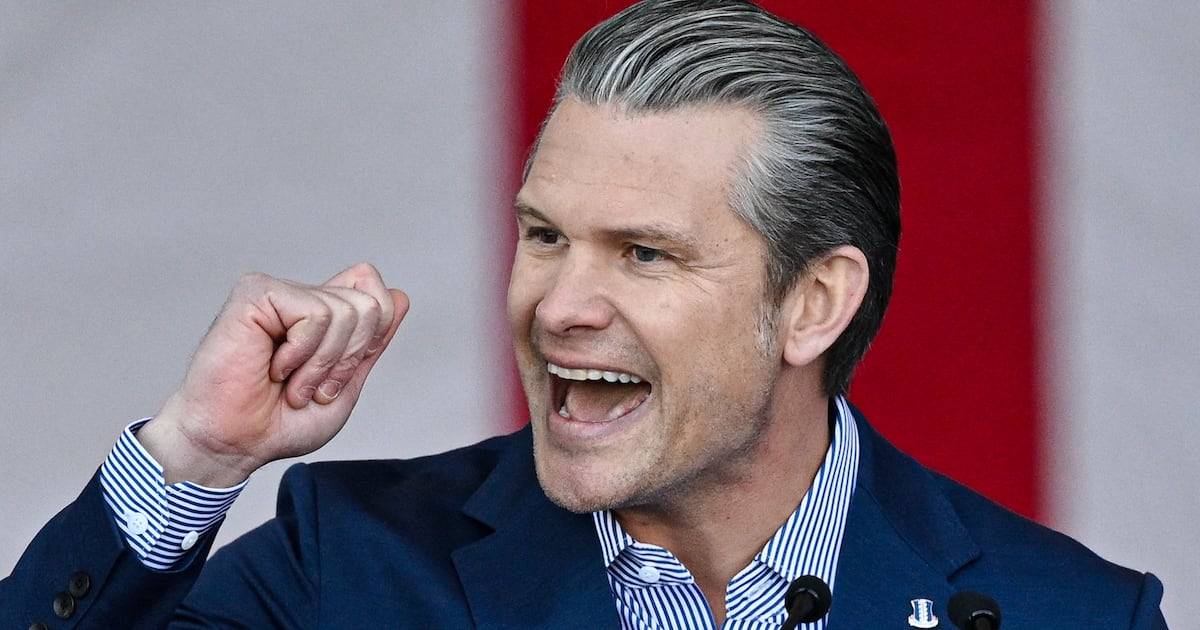Late in the third season of Borgen, a remarkable television series about Danish politics, the former (and perhaps future) Prime Minister Birgitte Nyborg, played the stunning Sidse Babett Knudsen, enters the wood-paneled conference room of conservative leader Lars Hesselboe, her longtime rival. I won’t spoil the plot, because I know you decided to spend the rest of your weekend binging on Borgen the second you read the words “a remarkable television series about Danish politics.” Suffice it to say that Hesselboe and Nyborg are at odds about something very important. Denmark will prosper if they partner up, but they still can’t seem to agree on the details.

Hesselboe fills two cordial glasses with port. Nyborg hesitates, then sips, then recoils. “Unless you are willing to seek a consensus,” she says, regaining her composure, “[this] will be hard for us.”
Hesselboe looks away. He shakes his head. “It may be more pragmatic to negotiate with you from case to case,” he says. “To sign agreements with you, but allow you to stand on the outside.”
Nyborg stares straight at him. “There is also a third option,” she says. Hesselboe perks up.
“That you make concessions.”
And eventually he does. Imagine that.
Perhaps we could all use a little more Borgen right now. During the Great Depression, American moviegoers escaped the drudgery of their daily lives by watching Fred Astaire dance and drink champagne with Ginger Rogers. She would slip into an evening gown, he would brush off his top hat, white tie, and tails, and most of the time they would be on a gigantic boat. In that spirit, I decided last week to escape the only slightly less depressing spectacle in Washington, D.C.—the subjuvenile government shutdown—by watching a sober Scandinavian drama about the fine art of compromise, both public and private.
In July 2012 I called Borgen “the Best Political Show Ever.” Now, with Season 3 having debuted Friday on KCET in Los Angeles and LinkTV elsewhere (including the Internet), I figured the series might offer a corrective of sorts to the wingnuttery we’re witnessing on Capitol Hill—a reality check, albeit a fictional one. At the very least it would spare me from seeing Mitch McConnell’s turkeyface on CNN every 15 minutes.
The first season of Borgen, which aired in Denmark in late 2010, was about the strain Nyborg’s historic prime ministership put on her family; the second was about the strain it put on her principles. Season 3 is all about reconnecting with those ideals. We first encounter Nyborg in Hong Kong two years after she’s left office. She’s parlayed her political career into slick corporate consulting and speaking gig; her suave new paramour, British architect Jeremy Welsh (Alastair Mackenzie), is visiting Hong Kong as well. But Nyborg is restless. Back in Copenhagen, she grows dissatisfied with Jacob Kruse (Jens Jacob Tychsen), her backstabbing Moderate Party protege, and reenters the political arena to challenge his leadership. Crusading TV1 anchor Katrine Fønsmark (Birgitte Hjort Sørensen) signs on as Nyborg’s media adviser; Fønsmark’s former boss, TV1 chief editor Torben Friis (The Killing’s Søren Malling), must scramble to cover Nyborg’s comeback without her. As it has from the beginning, Borgen spends the rest of the season exploring the no man’s land where idealism meets reality. Now a maverick, Nyborg is always recalibrating her tolerance for political compromise, and Friis constantly vacillates between defending the integrity of his program and appeasing his young, jewelry-wearing, ratings-obsessed boss. It sounds wonky, but somehow it’s thrilling. That’s the alchemy of this show.
But what does Borgen have to do with us? America’s coastal elites tend to namecheck Scandinavia whenever they want to criticize U.S. public policy, but Borgen isn’t relevant right now because its politicians are debating how best to regulate prostitution and clean up the pork industry—real, episode-long plotlines on the show—while our representatives are throwing temper tantrums to prevent people from gaining access to health insurance. America is not Denmark. Our liberals are more conservative than their conservatives. I get it.
The reason Borgen is relevant to America’s current predicament isn’t policy. It’s process. As Salon’s Willa Paskin has written, “one of the thrills of watching “Borgen” as an American is to see a politics not entirely paralyzed and polarized.” You have to build coalitions to lead a parliamentary democracy—and to build coalitions, you have to compromise. When Nyborg leaves the Moderates to found her own political party, the New Democrats, she convinces a member of the New Right to come with her. When she challenges the establishment, it’s with facts and figures rather than Ted-Cruz-style rhetoric.
Here in America this sort of reality-based governance is stirring to watch onscreen because offscreen—where a horde of Tea Party Republicans who represent safe districts and don’t care about positioning their party for the next election are holding the government hostage and risking default for no practical purpose—it’s never seemed so far out of reach. As Ezra Klein has put it: “the reason the [Republican] establishment has such trouble with the Tea Party is that the Tea Party really, truly means it. They don’t want to cut a deal. They don’t want to get the most that they reasonably can…Traditional politicians such as [GOP House Speaker John] Boehner have no playbook for dealing with a powerful faction that’s completely uninterested in strategic or pragmatic concerns.” Birgitte Nyborg has plenty of problems, but that’s definitely not one of them.
On Borgen, grandstanding and deceit still plague the political process. But the show’s fundamental incentive structure is refreshingly rational. Prostitution opponents cite scientific studies; supporters of legalization find flaws in the data. Nyborg loses one debate when she can’t explain how she’ll tighten green regulations and increase corporate competitiveness at the same time, then wins the rematch when she exposes the fuzzy math behind Kruse’s economic plan.
In America, our political fantasies tend to center around individuals; if only our real leaders were as wise and righteous as Aaron Sorkin’s, we say, then at last Washington would be cured. But the leaders on Borgen are not necessarily smarter or more sensible than the ones we’re saddled with; it’s the system that makes more sense. The characters simply work within it. Ultimately, that seems like the more poignant fantasy to me. The West Wing could never, ever happen anywhere on Planet Earth, including America. But roughly speaking, Borgen can, and does—just somewhere else.
It’s too late, of course, to alter our system of government, and that’s why Borgen is an escapist entertainment, not a leadership tutorial. But the series does at least one thing that it’s not too late for us to do, too: it never forgets that everyone is human. The way Nyborg sweeps her son’s blond curls from his forehead when he’s frightened; the way she crinkles her nose when Welsh surprises her with a visit to Copenhagen. The way Fønsmark craves and criticizes her ex, often at the same time; the way Friis’s wife is mad at him for working too much, yet proud of the work he does. As I wrote last year, every public decision on Borgen has private consequences, and vice versa, which is something Hollywood usually ignores and real politicians, operatives, and journalists have to hide. Finally getting to see these secret repercussions spool out and spill over isn’t just spellbinding. It’s comforting, too.
As Americans, our impressions of politicians are as polarized as our politics: they’re either the supermen of the fake West Wing or the robots of the real one. At the same time, our politicians seem to regard each other as cable-worthy antiheroes—brutal Tony Sopranos and scheming Walter Whites. In the end, Borgen reminds us that political creatures—whether from Denmark or North Dakota—can be something else as well: people. Perhaps it would help if we sent a few hundred DVDs to Capitol Hill.






